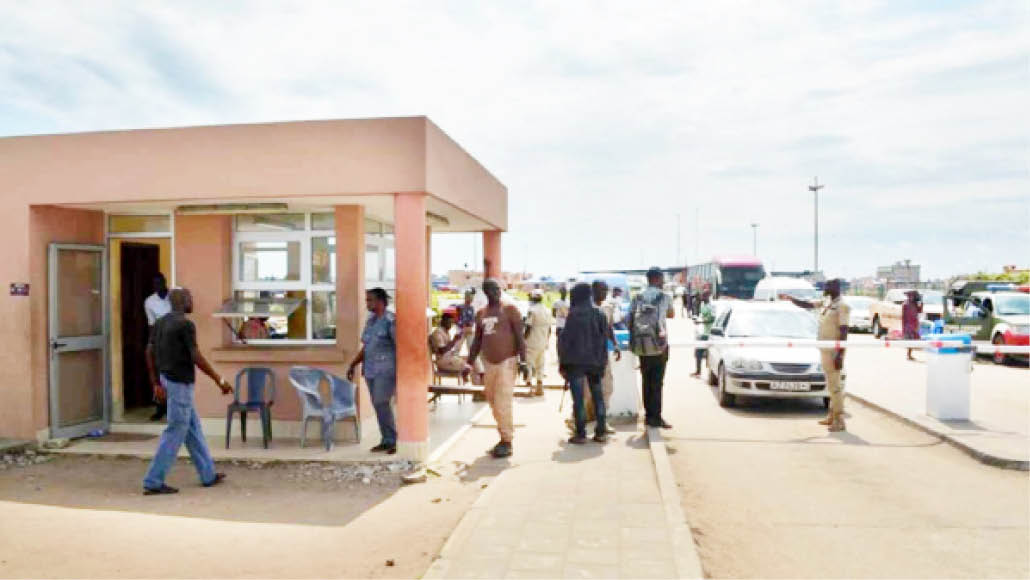Security personnel deployed to man key Nigerian land borders have not been paid their mandatory allowance for 10 months, multiple sources involved in the operation told Daily Trust.
An inter-agency operation tagged Joint Border Drill Operation was jointly piloted by the Office of the National Security Adviser (ONSA) and the Nigerian Customs Service (NCS) to ensure total compliance with the ban on movements along the border routes.
- NAFDAC intercepts truck conveying banned medicines, vaccines in Delta
- Rainstorm wrecks havoc in Kwara
Hundreds of personnel were drawn from the NCS, Nigerian Immigration Service (NIS), police, Department of State Service (DSS), National Intelligence Agency (NIA), and the military, to form the border-manning teams.
Though the borders were reopened in December 2020, the operatives were retained and redesigned to continue surveillance and counter-smuggling. The codename for the operation was changed to Joint Border Patrol.
Comptroller General of the Nigerian Customs Service (NCS), retired Col. Hameed Ali, confirmed the change of status and expectations from the operation while speaking in February.
“We just set up a joint border patrol. It is an offshoot of the joint border drill, which was the operation we launched to close our borders,” Ali said.
In addition to other responsibilities, the operatives were tasked to stop the importation of illegal arms and contraband goods as part of efforts to address rising security challenges while at the same time boosting local production of assorted food items like rice, oil, among others.
The non-payment of the Duty Travel Allowance (DTA) for a long period is affecting morale of officers and threatening a key security operation of the country, security sources familiar with happenings said.
Located at the extreme inner corner of the Gulf of Guinea on the west coast of Africa, Nigeria occupies an area of 923,768 sq. km (356,669 sq mi), extending 1,127 km (700 mi) East to West and 1,046 km (650 mi) North to South. It is bordered by Chad, Cameroon, Niger and Benin, with a total boundary length of 4,900 km (3,045 mi), of which 853 km (530 mi) is coastline.
The deployed officers are expected to contain smuggling and protect the territorial integrity of the country which is largely porous.
Some of the affected personnel who spoke with our correspondents on the condition of anonymity for fear of victimisation, said months of unpaid allowances had rendered them all covered in debts and unable to meet up obligations to hoteliers, landlords and food vendors.
Besides low morale, officers involved in the exercise lamented that the government’s inability to meet up with its obligation is affecting the operation as it was becoming increasingly difficult to enforce discipline and ensure accountability in the line of duty.
The owed allowances were meant to cater for accommodation and feeding of the personnel who were deployed specifically to man the country’s borders following the closure of the land borders in August 2019.
The federal government, through the Minister of Finance, Budget and National Planning, Mrs Zainab Ahmed, had justified the closure of the land borders at the time, which she said will help the government address the proliferation of arms and influx of other contrabands.
The security operatives were deployed to key towns affected by the border closure including Idi-iroko, Seme, Jibia, Kamba, Kongolom, Maigatari and Illela.
The entitlements
“Like with all special operations, we were posted from different areas to join this new operation and that was why we were entitled to DTA,” one customs officer said.
The deployed operatives were placed on a daily allowance of N12, 000 for officers and N6,000 for junior ranks.
While payments were made for the first few months of the operations, largely in arrears of two to three months, it became prolonged later with personnel having to wait for months before getting anything.
Last year, after a long delay, arrears for four months was paid. However, since May last year, not a dime was paid to the personnel in the name of the allowances.
Sources at the customs and ONSA told our reporter that the delay was being caused by the Federal Ministry of Finance, which has the mandate of funds releases.
“The office in charge of that operation at ONSA has written nothing less than three letters to the Ministry of Finance on this issue but they are yet to oblige,” said one source who craved for anonymity as he has no permission to speak.
Dire condition
Some operatives who spoke on the condition of anonymity lamented that they have been neglected despite the enormous responsibility placed on them.
“Morale is low because there is no motivation, which is very important for the success of any operation,” a unit commander involved in the operation told one of our reporters.
He said the personnel involved in the operation are being “made vulnerable to compromise”, with many of them owing hoteliers and giving out personal belongings as collateral.
“Our people are sacrificing. A number of our people have been killed either by smugglers or insurgents yet we have made huge recoveries all over the place. But with this nonchalant attitude, morale is honestly diving,” the source said.
He explained that it was becoming increasingly difficult to enforce discipline as men often challenge their superiors or justify their acts of compromise.
“The low morale is also breeding insubordination as enforcement of discipline is becoming very tough. You will ask your men to do something but they will be very lethargic about it or even reject it outright. This is dangerous for the success of the operation.”
With the dangers insecure borders pose to Nigeria’s security as major entry points of light arms, a senior security source familiar with the operation lamented that toying with the welfare of the men may have a dire consequence on Nigeria’s security.
Finance ministry, Customs shifty
The Federal Ministry of Finance and the Customs appeared to be shifting roles over the unpaid allowances.
When contacted on the delay in paying the border operatives their entitlements, Yunusa Tanko, who is the Special Adviser, Media and Communications to the Minister of Finance, Budget and National Planning, said the issue was purely a customs matter.
“Please, I don’t understand this enquiry honestly. Did customs tell you their money is released and that of the patrol team held back?
“This is purely a custom issue not ministry of finance so direct your enquiry to the proper channel/agency.”
Contacted, NCS spokesman, Joseph Attah, said he was not aware of the issue.
He, however, noted that customs has been at the fore of the operation and had provided all the required needs for the operatives to ensure high morale.
It’s dangerous to toy with security
A security expert, Salihu Bakhari, said the federal government must always fulfil its own part of the obligation to discourage security operatives from compromising themselves.
“You see, most of the operatives deployed for such exercise were brought together from different places. They left their families behind in order to protect the territorial integrity of the country.
“I know that most VIPs especially politicians and chief executives of agencies collect their allowances long before they travel…It is therefore very sad to hear that security operatives who put their lives on the line are neglected.
“This attitude makes them prone to corruption because they are easily compromised by high profile smugglers who would give them a lot of money to have their way.
“There is a strong correlation between the infiltration of illegal arms and our porous borders. The federal government and the frontline state governments must come together and fund border security,” he said.

 Join Daily Trust WhatsApp Community For Quick Access To News and Happenings Around You.
Join Daily Trust WhatsApp Community For Quick Access To News and Happenings Around You.


